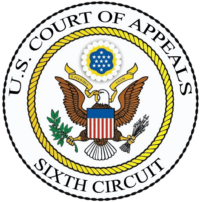Originally published on Forbes.com Sept 29th, 2014
When I saw the obituary of James A. Traficant Jr., sheriff, Congressman and convicted felon, I had a strong sense, that this was a fellow that must have made his mark on tax history. It turns out I was right. The tax drama is something of a side note to a turning point in his life. Mr. Traficant had been a drug counselor and then, in 1980, was elected sheriff of Mahoning County in Ohio. As described in his obituary it was not long before he became well known.
He became a local celebrity in 1983 when he was acquitted on a federal corruption charge in another case in which he acted as his own lawyer, even though he had no law degree. Prosecutors had accused him of accepting bribes from organized crime figures while he was the sheriff, but he argued that he was conducting a sting operation at the time.
In 1984 he was elected to Congress, where he served until 2002, when, after being convicted on bribery charges, he became the fifth member of the House of Representatives to be expelled. For whatever it is worth, all five were Democrats. Michael J. Myers was caught up in the Abscam scandal in 1980. The first three were expelled in 1861, for taking up arms against the United States, in what we politely refer to as the late unpleasantness.
A Congressman In Tax Court
That federal acquittal that set Mr. Traficant on the path to fame also is the source of his place in tax history. You see the IRS thought that Mr. Traficant should have paid taxes on those bribes that were not proved beyond a reasonable doubt. He of course appealed the deficiency notice to Tax Court. (I didn’t find a free link to the Tax Court decision (58 TC 501 – 9/10/1987)) . The most interesting bits of that decision including some excerpts from tapes are in the footnotes. Here is what I found most interesting.
In the spring of 1983, petitioner was tried in the United States District Court for the Northern District of Ohio by jury on charges of accepting bribes in violation of the Racketeer Influenced and Corrupt Organizations Act, 18 U.S.C. sec. 1961 et seq., and of willfully making and subscribing a false return in violation of sec. 7206(1), and was acquitted. Although repeatedly advised by this Court that his argument was without foundation, petitioner has continued to advance at trial and on brief the position that the jury verdict in his criminal case has res judicata effect over the issues in dispute in this case. We reiterate that petitioner’s argument is meritless. This is a civil case in which the burden of proof is based on a different standard. The jury determined only that reasonable doubt existed that the accused was guilty of the offenses charged. Accordingly, neither the doctrine of res judicata nor of collateral estoppel bars respondent from litigating the deficiency and addition to tax for fraud at issue in this case.
An Appeal
Then Congressman Traficant appealed the Tax Court decision to the Sixth Circuit. It did not go well for him there either.
Nothing Traficant argues before us takes his case outside the clear rule of Helvering v. Mitchell. In particular, he argues that a jury instruction in his criminal trial — requiring the jury to determine whether Traficant had failed to report bribes only if it found that he had accepted bribes — requires us to consider his acquittal as a finding that he did not accept bribes. The jury was also given a reasonable doubt instruction. It is the latter instruction, not the former, that imposes a legal meaning on his acquittal, and that meaning is simple: it has not been proven beyond a reasonable doubt that Traficant took bribes from La Cosa Nostra.
Fraud may be proven by circumstantial evidence We consider that the proven deviations from Traficant’s campaign-donation record keeping procedures, his failure to report these monies as donations to the campaign, and his inconsistent explanations of his conduct all point towards fraud, both in common sense and under existing law.
Your Money Or Your Life
The principle is that in civil tax matters, where all that is at stake is your money as opposed to a portion of your lifespan, you bear the burden proof. In criminal matters it is the government that bears the burden and has to meet the high standard of “beyond a reasonable doubt”. Frequently you will see attorneys representing themselves in Tax Court and failing to grasp this distinction. The most notable relatively recent instance of this phenomenon was when the great F. Lee Bailey represented himself in Tax Court. He won on some fairly knotty issues, but did terribly when it came to substantiation.
Mr. Traficant’s place in tax history is fairly solid, as the Sixth Circuit decision has been cited dozens of time since it was issued. Most recent was the case of Pitcher v Waldman in which Traficant was cited for the principle that fraud can be inferred from circumstantial evidence. I was surprised that I missed Pitcher v Waldman when it came out in early April since it concerned the ugly breakup of a CPA firm. I was thinking I need to do a late post on it, but it turns out that Joe Kristan covered it quite well.
It seems like a lot of people are quite annoyed about the burden of proof being different in civil tax matters. Maybe it’s because when the question is your money or your life, the answer is not always apparent.































































































